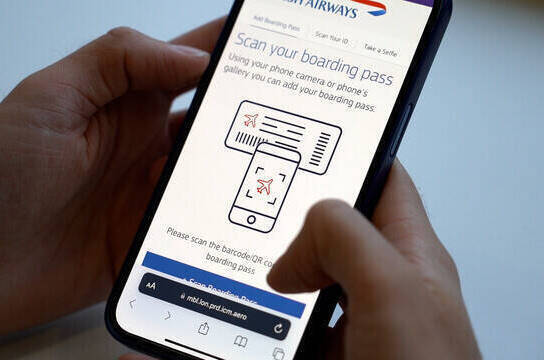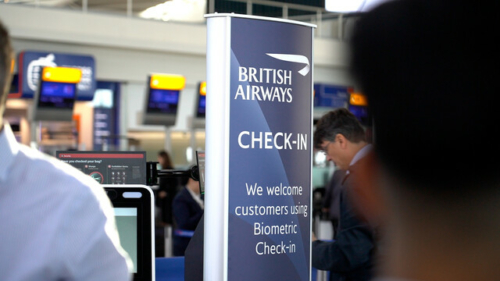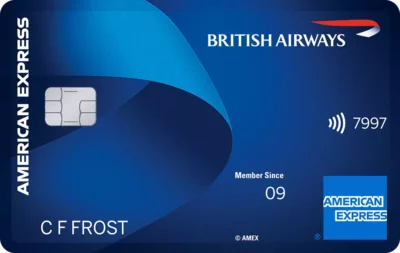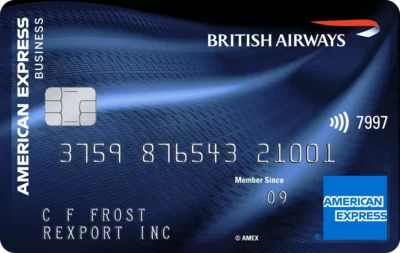British Airways trialling biometric check-in for international flights
Links on Head for Points may support the site by paying a commission. See here for all partner links.
British Airways has become the first UK airline to trial the use of biometric technology for international flights.
This will allow you to pass through Heathrow without showing your passport, with your face scanned on boarding and matched to an image stored on file.
The technology has been in use on domestic flights since 2017 with passenger scans taken at security and checked during boarding.

How does it work?
During the trial, selected passengers (Heathrow Terminal 5 only) will be emailed in advance with an invitation.
You will need to scan your face, passport and boarding pass on your smartphone before you arrive at the airport.
Smart Bio-Pod cameras will verify your identity within three seconds instead of having to show your passport.
You will, of course, still need to have your passport with you to show on arrival and at UK immigration on your return.
And there’s a bribe ….
To encourage passengers to take part, those who agree will receive Fast Track security and priority boarding for their flight.

Which routes are involved?
The trial is initially limited to the Malaga route. It will last for six months, before a decision is taken on whether to fully roll it out.
To quote ….
David Breeze, Operations Transformation Manager for British Airways, said:
“Not only is this the first time that our customers have been able to register their biometric information at home, but it’s the first time they can use it for British Airways’ international flights. This is a secure and efficient tool that makes for a smarter and smoother airport experience, which will reduce the time it takes us to board aircraft”
“The beauty of this technology is that it also frees our people up to look after more complex customer enquiries and deliver the best possible customer service.”

How to earn Avios from UK credit cards (April 2024)
As a reminder, there are various ways of earning Avios points from UK credit cards. Many cards also have generous sign-up bonuses!
In February 2022, Barclaycard launched two exciting new Barclaycard Avios Mastercard cards with a bonus of up to 25,000 Avios. You can apply here.
You qualify for the bonus on these cards even if you have a British Airways American Express card:

Barclaycard Avios Plus Mastercard
Get 25,000 Avios for signing up and an upgrade voucher at £10,000 Read our full review

Barclaycard Avios Mastercard
5,000 Avios for signing up and an upgrade voucher at £20,000 Read our full review
There are two official British Airways American Express cards with attractive sign-up bonuses:

British Airways American Express Premium Plus
25,000 Avios and the famous annual 2-4-1 voucher Read our full review

British Airways American Express
5,000 Avios for signing up and an Economy 2-4-1 voucher for spending £15,000 Read our full review
You can also get generous sign-up bonuses by applying for American Express cards which earn Membership Rewards points. These points convert at 1:1 into Avios.

American Express Preferred Rewards Gold
Your best beginner’s card – 20,000 points, FREE for a year & four airport lounge passes Read our full review

The Platinum Card from American Express
40,000 bonus points and a huge range of valuable benefits – for a fee Read our full review
Run your own business?
We recommend Capital on Tap for limited companies. You earn 1 Avios per £1 which is impressive for a Visa card, along with a sign-up bonus worth 10,500 Avios.
SPECIAL OFFER: Until 12th May 2024, the Capital on Tap Business Rewards Visa card is offering a bonus of 30,000 points, convertible into 30,000 Avios. You must have a Limited Company to apply. Click here to learn more and click here to apply.

Capital on Tap Business Rewards Visa
Huge 30,000 points bonus until 12th May 2024 Read our full review
You should also consider the British Airways Accelerating Business credit card. This is open to sole traders as well as limited companies and has a 30,000 Avios sign-up bonus.

British Airways Accelerating Business American Express
30,000 Avios sign-up bonus – plus annual bonuses of up to 30,000 Avios Read our full review
There are also generous bonuses on the two American Express Business cards, with the points converting at 1:1 into Avios. These cards are open to sole traders as well as limited companies.

American Express Business Platinum
40,000 points sign-up bonus and an annual £200 Amex Travel credit Read our full review

American Express Business Gold
20,000 points sign-up bonus and FREE for a year Read our full review
Click here to read our detailed summary of all UK credit cards which earn Avios. This includes both personal and small business cards.








Comments (96)